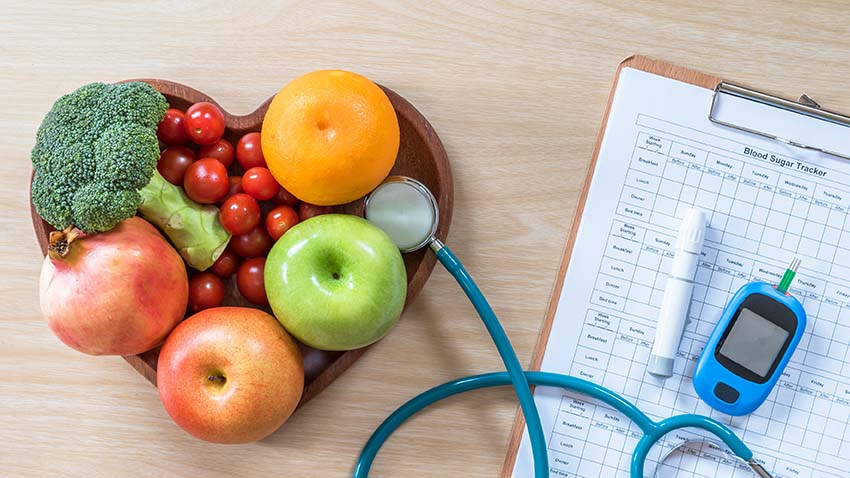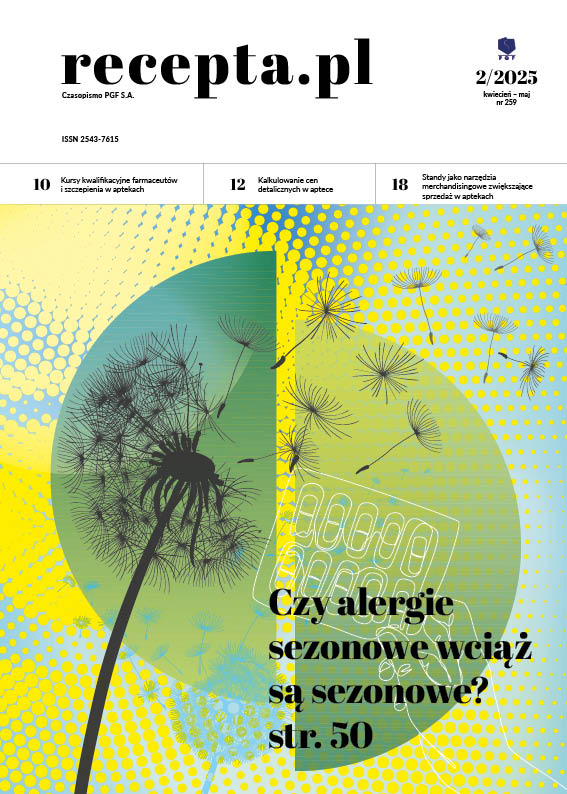
The Common Cold
A family is a unit composed not only of children but of men, women, an occasional animal, and the common cold.
Ogden Nash
It was an American poet Ogden Nash who came up with the above definition of a family. Not only every mother and father knows this is true but also every pharmacist. No matter what we do to keep our immune system in shape, we are going to get the occasional cold or even the flu.
The definition of the common cold is that it is a viral infection of the upper respiratory tract that affects the nose, the throat, the sinuses and the larynx. The symptoms include, coughing, a sore throat, a runny nose, headache and sometimes fever. These symptoms usually last up to seven to ten days.
The flu which is short for influenza is also a viral infection caused by influenza viruses. Symptoms are similar to those occurring when one has a cold but may also include muscle pain, cough, and fatigue. Diarrhea and vomiting can also occur. The flu may cause a worsening of existing health issues such as asthma or cardiovascular problems. The most serious complications include meningitis and encephalitis. The progress of the infection may also lead to primary and secondary pneumonia. Washing our hands frequently and wearing protective masks is the best way to stop the spread of influenza. Probably the best known flu pandemic was the Spanish flu between 1918–1920 which killed as many as 100 million people. Other serious influenzas which affected people worldwide included the Asian flu (1957–1958), the Hong Kong flu (1968–1969), the Russian flu (1977–1979) and the 2009 swine flu but unlike the Spanish flu none of them killed more than 4 million people. The typical yearly flu kills between 290,000 – 650,000 people each year.
Thus, common as the common cold and the flu are, patients are going to turn to pharmacists for help. Often the patients are self-diagnosed and they come to buy a given product or they come for counselling. The pharmacy can offer several over-the-counter remedies based on the patient’s symptoms. Optimally, the pharmacist should offer the patient information concerning dosage, possible side-effects and interactions.
Ciekawostka
When people sneeze others often say ‘God bless you’. The expression comes from the fact that in the past centuries people thought that the flu had something to do with God and epidemics with ‘the stars or the devil’. The story goes that in 590 [A.D.], Pope Gregory I instructed the citizens of Rome to pray to repel the Bubonic Plague (also known as Black Death or the Plague) occurring from 1346 to 1353.
Zapamiętaj! Feeling under the weather
If you are feeling under the weather you are not feeling well. We can also say that we are weak unwell, indisposed or not our best. You may feel sickly, poorly or unsound.
Zapamiętaj! Wyrażenia ze słowem cold
to catch a cold – złapać katar
freeezing cold – bardzo zimno
to give somebody a cold shoulder – traktować kogoś ozięble
to come in from the cold – wrócić do łask
to get cold feet – stchórzyć
Zapamiętaj! Przysłowia o zdrowiu
An apple a day keeps the doctor away.
Early to bed and early to rise makes a man healthy, wealthy and wise.
Health is wealth.
SŁOWNICZEK
Bubonic Plague – dżuma
devil – diabeł
diarrhea – biegunka
encephalitis – zapalenie mózgu
fatigue – zmęczenie
fever – gorączka
God bless you – na zdrowie (dosłownie „niech cię Bóg błogosławi”)
indisposed – niedysponowany
in shape – w formie
larynx – krtań
meningitis – zapalenie opon mózgowych
occurr – występować
pneumonia – zapalenie płuc
poorly – kiepsko
remedy – remedium
repel – odeprzeć
runny nose – cieknący nos
sore throat – bolące gardło
spread (of) – rozprzestrzenianie
stars – gwiazdy, niebiosa
swine flu – świńska grypa
thus – w ten sposób
unsound – wątły
upper respiratory tract – górne drogi oddechowe
weak – wyczerpany
wealth – bogactwo
wealthy – bogaty
NAJCZĘŚCIEJ SPRZEDAWANE SUBSTANCJE OTC NA PRZEZIĘBIENIE I GRYPĘ
alpha1-mimetics
anti-histamines
anti-viral mixtures
acetylsalicylic acid
ascorbic acid
cough mixtures
ibuprofen
mucolytics
nonsteroidal anti-inflammatory drugs (NSAIDs)
paracetamol
pseudoephedrine
NAJCZĘŚCIEJ SPRZEDAWANE POSTACI PREPARATÓW
capsules
gels
in soluble form
in sachets
nasal spray
syrup
mixture
pills
preparation
tablets
PODRĘCZNY SŁOWNICZEK ZIÓŁ
camomile – rumianek
cornflower – bławatek
ginger – imbir
horsetail – skrzyp polny
lavender – lawenda
lime tree – lipa
mint – mięta
raspberry – malina
rose – róża
rose-hip – głóg
sage – szałwia
ROZMÓWKI
Farmaceuta: Hello, how can I help you? – Dzień dobry, w czym mogę pomóc?
Are you next? I speak English – Czy pan/pani jest następny/następna w kolejce? Mówię po angielsku.
Do you speak English? Can I help? – Czy mówi pan/pani po angielsku? Czy mogę pomóc?
Pacjent: I seem to have a runny nose and a cold – Cieknie mi z nosa i jestem przeziębiony.
Could I also have a… (tu pada nazwa) please – Czy mógłbym/mogłabym także prosić o…
I feel a bit under the weather – Nie czuję się najlepiej.
Can you give me something for a stuffed nose? – Czy mogę prosić o coś na zatkany nos?
Farmaceuta: This should help… (tu podać preparat) – To powinno pomóc.
These drops should help – Te krople powinny pomóc.
Apply two drops in each nostril – Niech pan/pani zaaplikuje dwie krople do każdego nozdrza.
Do you have high temperature? – Czy ma pan/pani wysoką temperaturę?
Pacjent: Can you recommend something for sore throat/muscle pain? – Czy może pan/pani coś polecić na ból gardła/bóle mięśniowe?
Farmaceuta: Rinse your throat twice a day – Niech pan/pani płucze gardło dwa razy dziennie.
Take this cough mixture – Proszę zażywać ten syrop.
Please drink one teaspoon three times a day – Proszę pić jedną łyżeczkę trzy razy dziennie.
These tablets/this ointment should help – Te tabletki powinny pomóc / Ta maść powinna pomóc.
This is for external use only – To jest tylko do użytku zewnętrznego.
Please take one/two tablets a day/per day – Proszę brać jedną/dwie tabletki dziennie.
This should not be taken longer than five days – Tego nie należy zażywać dłużej niż pięć dni.
If the symptoms persist, please consult your doctor – Jeśli objawy się utrzymają, proszę skonsultować to z lekarzem.
Please put fifteen drops into a glass of water and drink – Proszę dodać piętnaście kropli do szklanki wody i wypić.
Pacjent: Can you give me something for my headache please – Poproszę coś na ból głowy.
I would like… – Chciałbym…
I need… – Potrzebuję…
Have you got… (nazwa leku preparatu)? – Czy macie…?
Do you sell…? – Czy sprzedajecie…?
Farmaceuta: I am afraid this is a prescription drug – Obawiam się, że to jest lek sprzedawany jedynie na receptę.
UWAGA! Język angielski jest o wiele grzeczniejszy i jeśli mamy przekazać jakąkolwiek negatywną informację, warto ją „zmiękczyć”, używając formy “I am afraid”, czyli „Przykro mi”.
But I can offer you this… – Ale mogę panu/pani zaproponować to…
Pacjent: Do I need a prescription for this? – Czy muszę mieć receptę na to?
Farmaceuta: No, this is an OTC drug – Nie, to jest lekarstwo sprzedawane bez recepty.
UWAGA! Skrót OTC oznacza “over the counter”.
You need to ask your doctor for a prescription – Musi pan/pani poprosić swojego lekarza o receptę.
Pacjent: The doctor gave me this prescription – Lekarz przepisał mi tę receptę.
Farmaceuta: Let me see – Poproszę (w domyśle receptę).
Pacjent: Here is the prescription – Proszę, oto recepta.
Farmaceuta: Do you have your prescription code number? – Czy ma pan/pani kod recepty?
Prescription code number, please – Proszę kod recepty.
I think we have it. Let me get that for you – Myślę, że to mamy. Zaraz panu/pani przyniosę.
Pacjent: Should I take these tablets before or after a meal? – Czy powinienem/powinnam brać te tabletki przed posiłkiem czy po posiłku?
Farmaceuta: Take this with your meals – Niech pan/pani bierze to wraz z posiłkiem.
Make sure you swallow this before eating – Proszę to połknąć przed jedzeniem.
How old is the patient? – W jakim wieku jest pacjent?
Please keep this medicine out of reach of children – Proszę trzymać poza zasięgiem dzieci.
Keep this in the fridge – Niech pan/pani trzyma to w lodówce.
This should not be given to children under the age of three – Tego nie należy podawać dzieciom do lat trzech.
If the symptoms do not ease please consult a doctor – Jeśli objawy nie ustąpią, proszę skonsultować to z lekarzem.
It would be better to consult a specialist – Byłoby lepiej skonsultować to ze specjalistą.
Please take this preparation twice a day – Proszę brać ten preparat dwa razy dziennie.
Please take one tablet before you go to sleep – Proszę zażyć jedną tabletkę przed pójściem spać.
UWAGA! Po angielsku nie mówimy bezosobowo, np. „Bierzemy jedną tabletkę przed snem”.
Our pharmacy is open 24 hours – Nasza apteka jest czynna 24 godziny na dobę.
You may also order online and collect the products in our pharmacy – Może pan/pani także zamawiać online i odebrać produkty w naszej aptece.
Do you need anything else? – Czy potrzeba coś jeszcze?
Would you like to try one of our herbal remedies? – Czy chciałby pan / chciałaby pani wypróbować jeden z naszych ziołowych leków?
Raspberries are very good for… – Maliny pomagają na…
Pardon? Could you repeat this please? – Przepraszam, nie dosłyszałem/dosłyszałam. Czy mógłby pan/pani powtórzyć?
Here you are – Proszę (gdy coś podajemy).
UWAGA! Po angielsku słowa “please” używamy jedynie w zdaniu, a gdy podajemy coś komuś, to używamy “Here you are” i tylko wtedy.
Pacjent: How much do I owe you? – Ile jestem winien/winna?
Farmaceuta: This comes to 85 zł – Razem to będzie 85 zł.
Pacjent: Can I pay with my card? – Czy mogę zapłacić kartą?
Naturally/of course – Naturalnie/Oczywiście.
Get well soon – Życzę zdrowia.
Thank you. Goodbye – Dziękuję. Do widzenia.







